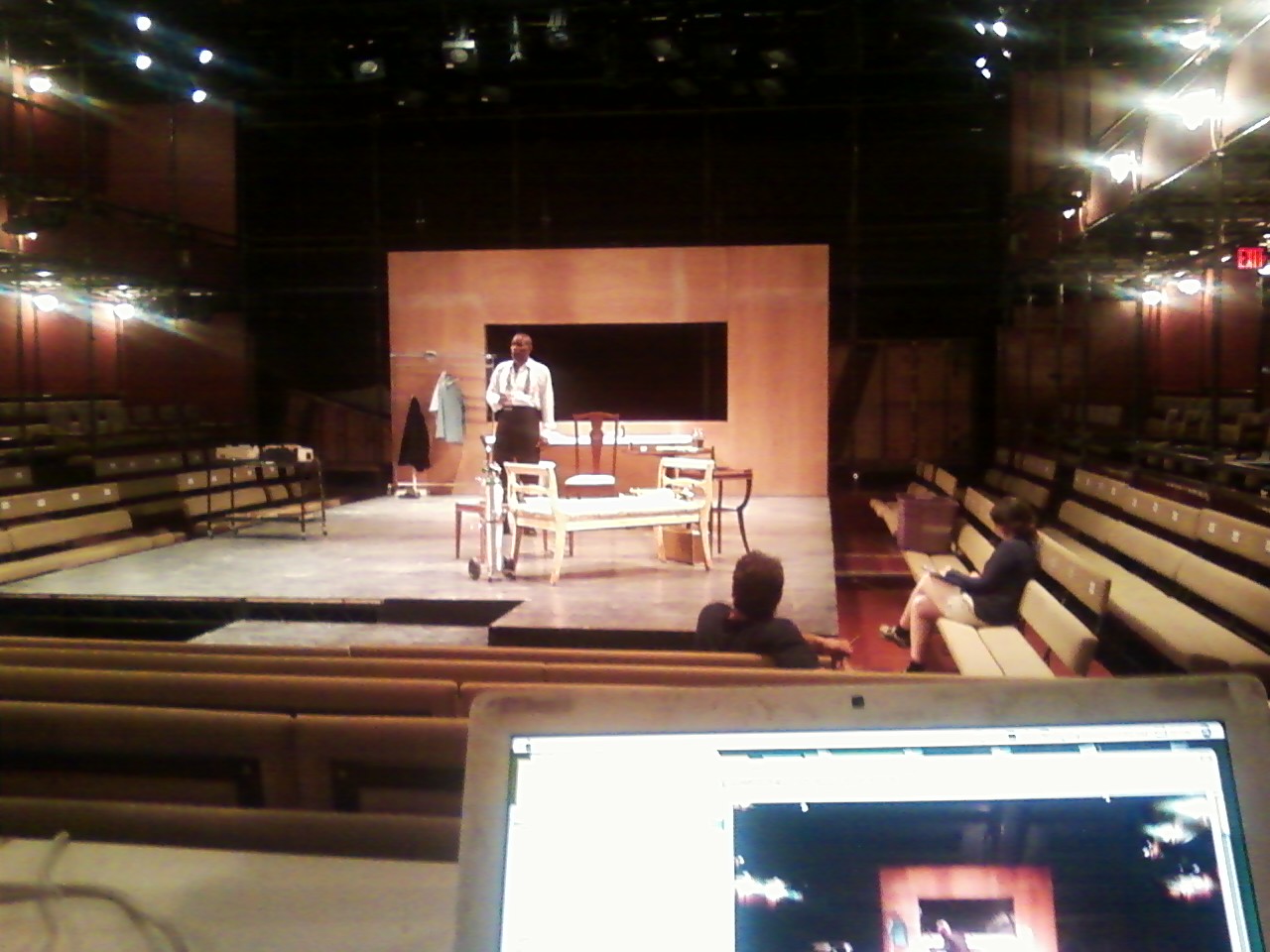 The first public performance of Satchmo at the Waldorf takes place on Wednesday night at Shakespeare & Company’s Packer Playhouse in Lenox, Massachusetts. Needless to say, John Douglas Thompson, Gordon Edelstein, and I will be spending all day tomorrow rehearsing. Even so, I already feel good about the show, not because I’m feeling especially cocky about the play–it is what it is–but because of the phenomenal work that John, Gordon, and my other colleagues have done and are continuing to do. They are artists of the first rank, and I am privileged beyond measure to be working with them.
The first public performance of Satchmo at the Waldorf takes place on Wednesday night at Shakespeare & Company’s Packer Playhouse in Lenox, Massachusetts. Needless to say, John Douglas Thompson, Gordon Edelstein, and I will be spending all day tomorrow rehearsing. Even so, I already feel good about the show, not because I’m feeling especially cocky about the play–it is what it is–but because of the phenomenal work that John, Gordon, and my other colleagues have done and are continuing to do. They are artists of the first rank, and I am privileged beyond measure to be working with them.
The Boston Globe ran a feature on Sunday that conveys something of our collective excitement. This quote sums up my share of it: “‘I’d call it a dream come true, except I never would have had the nerve to dream any of this,’ Teachout said, shaking his head.”
 To celebrate the occasion, I’ll be posting daily videos drawn from TV broadcasts that Armstrong made during the last decade of his life, the period portrayed in Satchmo at the Waldorf. Just as my play shows what he was like off stage, so do these videos show what he was like on stage, giving everything he had and then some. “The people expect all that from me–coming out all chesty, making faces,” he said in a 1965 interview. “That’s me and I don’t want to be nobody else. They know I’m there in the cause of happiness.”
To celebrate the occasion, I’ll be posting daily videos drawn from TV broadcasts that Armstrong made during the last decade of his life, the period portrayed in Satchmo at the Waldorf. Just as my play shows what he was like off stage, so do these videos show what he was like on stage, giving everything he had and then some. “The people expect all that from me–coming out all chesty, making faces,” he said in a 1965 interview. “That’s me and I don’t want to be nobody else. They know I’m there in the cause of happiness.”
For those of you who’ll be coming to Wednesday’s performance, forgive me if I seem a bit distracted. This will be the fourth opening night of my adult life, and I expect to be well and truly distracted throughout the evening. That said, I have no doubt that your presence will buoy me up.
Now, back to work!
Archives for August 20, 2012
TT: A week of Satchmo (I)
Louis Armstrong and the All Stars perform “Indiana” on The Bell Telephone Hour in 1965:
TT: Almanac
“The Director’s Role: You are the obstetrician. You are not the parent of this child we call the play. You are present at its birth for clinical reasons, like a doctor or midwife. Your job most of the time is simply to do no harm.
“When something does go wrong, however, your awareness that something is awry–and your clinical intervention to correct it–can determine whether the child will thrive or suffer, live or die.”
Frank Hauser, Notes on Directing
